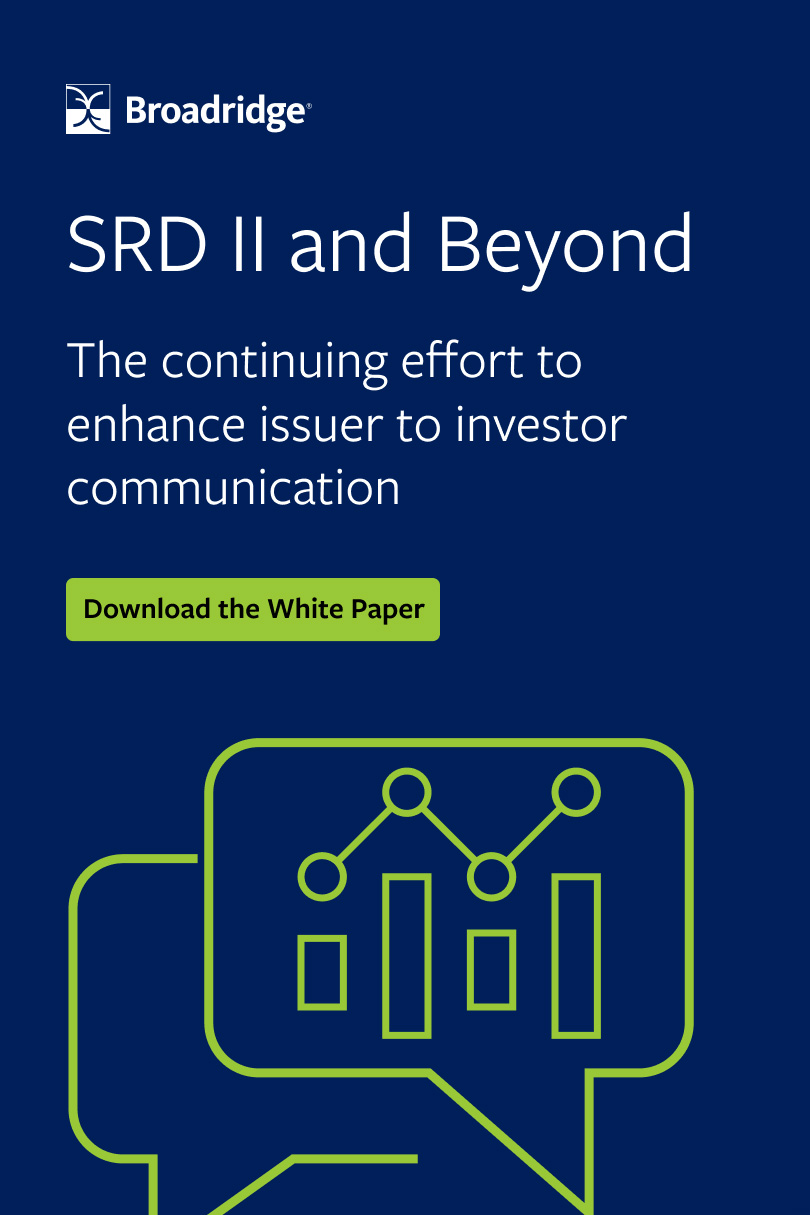Towards the end of last year, we hosted our Post-Trade Forum in London, bringing together key players from the industry to debate how the post-trade industry can continue to grow in value for financial market participants and ultimately, the end investors.
The European post-trade industry is confronted with a number of key questions. Foremost among these is the question of value. While the push for breakthrough and innovation is common across all industries, the difference today is the speed at which today’s value-added service becomes tomorrow’s commodity. The result is a perpetual “hunt for value”, a hunt that is complicated by a relative lack of understanding of what post-trade processing delivers to the full securities value chain.
This issue is weighing heavily on the minds of post-trade service providers, highlighted through some recent research we conducted. It found that 67 percent of respondents believe that post-trade service providers will need to focus on new service creation and revenue opportunities by 2027, if they are to continue creating value beyond being “simply operational”.
Re-thinking the fundamentals
This is potentially a daunting statistic, and points to a need to question the fundamentals of how our industry operates. For decades, the correspondent and transaction banking models have served the post-trade industry well, but with increased oversight, continued cost pressure and more demanding clients the challenge now is to fundamentally and profoundly reshape the way we work. But how does an industry that has grown to gigantic proportions even begin to address these challenges?
It is difficult to talk about innovation without focusing on technology. Over half, 63 percent, of the survey respondents highlighted robotic process automation (RPA) and artificial intelligence (AI) as the technologies that have the potential to provide the greatest value. This is interesting in that these technologies change the “how”, but not the “what” of the process.
This is followed by distributed ledger technology (DLT) (57 percent), cryptocurrencies (50 percent) and application programming interfaces (APIs) (37 percent). We can expect to see these buzzwords cropping up across almost every sector in 2018, as they jostle to streamline, centralise and improve customer experience. The unique challenge for the post-trade industry is the size of the ship we are looking to turn. And of course, ensuring that innovation is focused in the right areas.
Outsourcing success
Outsourcing is one of the most interesting trends that will have an impact on how post-trade service providers are able to add value. Of course, it is understandable that this sometimes comes with a degree of trepidation, generally centered on concerns about losing “know-how”, and ensuring that the partnership is with a provider with the right level of intelligence. That said, there are major cost efficiencies that can be driven through outsourcing non-differentiated functions such as tax services, corporate actions and collateral management.
Smart outsourcing, based on true partnerships with complementary capabilities will allow organisations to re-focus efforts on their core business, giving them the ‘corporate bandwidth’ to focus on the strategic, high-value, high-return services that will enable them to build a sustainable future.
Financial technology competition
While established post-trade service providers grapple with how to challenge the status quo to understand how things might be done differently, more nimble fintech providers are quickly re-writing the rule book.
The opportunity for fintech shines through in our research: 37 percent of respondents said that their organisation is ‘highly likely’ to turn to a Fintech provider for at least one post-trade service by 2027. This figure increases dramatically to 60 percent among asset management companies. The three key attractions of a fintech company are that they are perceived to be able to react more quickly to client needs, as well as approaching problems from a more innovative perspective, unconstrained by legacy systems and culture. This is closely linked to the perception that fintech companies are seen to have a different skill set in their employees that enables them to generate more value-creating services.
Spotlight on collaboration
When asked about how post-trade service providers can achieve the same level of innovation, the common theme of collaboration and openness emerges – not something that has historically been part of our industry’s outlook. Just under half, 43 percent, of respondents believe that post-trade service providers will need to partner with other companies, while 53 percent point to the need to hire different kinds of talent from outside the industry if they are to retain clients. Counterbalancing these perspectives, 37 percent of respondents highlight that a mixture of both technological and financial knowledge will be required to secure future value provision, bringing together a detailed understanding of the landscape and the skills to create new solutions.
To truly achieve a more agile value chain, and reduce costs substantially, the goal must be not to automate existing redundancies, but to eliminate them altogether. That, in turn, requires a fundamental re-evaluation of the roles, functions, and responsibilities of each player in the value chain. Technology, in all sectors, is increasingly moving power to end clients and users, and yet ‘our’ industry model is still focused on streamlining financial intermediaries, rather than focusing on what the end client wants and needs.
In the hunt for value, it is clear there is a new path to forge. With businesses to run, the pressure to innovate, a backdrop of change and indecision in Brussels and Westminster, and creeping regulations such as the second Markets in Financial Instruments Directive (MiFID II) and General Data Protection Regulation (GDPR) on the horizon, 2018 will be a pivotal year for the post-trade industry in a bid to retain and develop the high-value business lines it has worked so hard to establish.



